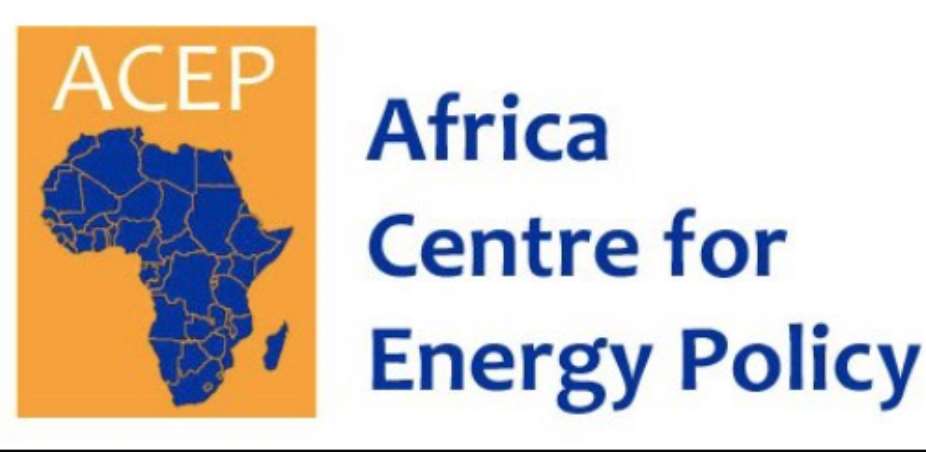The African Centre For Energy Policy- ACEP over the week led citizens of Ghana to discuss the Manifesto of the various political parties.
The Citizens’ Energy Manifesto Monitor gives Ghanaians from all walks of lives the opportunity to make an input into how state actors should manage our natural resources
The platform seeks to provide citizens the avenue to hold whoever emerges victorious in the 2016 elections accountable and their manifesto promises binding
In an event organised at Alisa Hotel to seek the views of expert on the various promises, the resourced persons noticed notable similarities between the various political parties’ view of our energy situation and how to resolve them
For instance in the area of Generational Capacity, the NDC promised to increase the capacity in excess of 5000 MW by 2021 and ensure there is universal access to electricity by 2025. The NPP on the other hand promised to increase capacity by implementing a 10 year Energy Master Plan to take care of our energy needs in the medium term to the long term
The Convention Peoples Party promised to explore, depending on the cost, technical feasibility and environmental friendliness: wind, nuclear, bio-mass, gas, hydro as sources of generating energy to increase the capacity
All the parties agreed on the need to resort to renewable energy to help meet the required capacity
Energy conservation was also common in the various manifestos. Most of the energy generated in Ghana gets lost through the process of transmission, illegal connection and abuse by end users
To avert the wastage of energy, the CPP will embark on nationwide campaign including writing energy conservation tips on every electricity bill to keep users informed about the need to conserve power and how it can be done
NDC will develop more energy sources and encourage conservation whereas the NPP made reference to the introduction of compact fluorescent bulbs by the Kufour government in 2007 as an example of some of the measure to be adopted to ensure energy is conserved
To analyse the various Manifestos’ Energy Promises, The African Centre for Energy Policy- ACEP instituted a 3 member panel of experts to lead the discussion and answer questions on the promises and how they can be achieved
The Panel member were; Mr Kweku Awote- Founder of Precious Minerals Ltd and former Chief Executive of Volta River Authority, Mr Emmanuel Kuyale an active player in the Mining Sector and Mr Ismael Edjekumhene- Executive Director of Kumasi Institute of Technology and Environment with ace Broadcaster Evans Mensah serving as the moderator
From the panellists, the positive aspect of the various Manifestos is that they agreed on most of the issues and in some cases fashioned out similar solutions.
This according to them will auger well for building consensus in the future and help approach our energy situation with a common voice
The Citizens Platform provides Ghanaians the opportunity to make input into how they should be government and how natural resources should be managed for benefit of all
ACEP has over the years served as a major player in the energy sector and it was therefore not surprising that almost all the manifestos contained recommendations by the organisations
The Executive Director of ACEP, Dr Mohammed Amin Adam, said that the monitor, which will help in tracking the energy manifestos of the various political parties, sought to help better inform the electorate.





 SSNIT must be managed without gov’t interference – Austin Gamey
SSNIT must be managed without gov’t interference – Austin Gamey
 Ejisu by-election could go either way between NPP and independent candidate — Gl...
Ejisu by-election could go either way between NPP and independent candidate — Gl...
 We never asked ministers, DCEs to bring NPP apparatchiks for returning officer r...
We never asked ministers, DCEs to bring NPP apparatchiks for returning officer r...
 No one denigrated the commission when you appointed NDC sympathizers during your...
No one denigrated the commission when you appointed NDC sympathizers during your...
 Used cloth dealers protests over delayed Kumasi Central Market project
Used cloth dealers protests over delayed Kumasi Central Market project
 A/R: Kwadaso onion market traders refuse to relocate to new site
A/R: Kwadaso onion market traders refuse to relocate to new site
 Dumsor: Corn mill operators at Kaneshie market face financial crisis
Dumsor: Corn mill operators at Kaneshie market face financial crisis
 Jamestown fishermen seek support over destruction of canoes by Tuesday's heavy d...
Jamestown fishermen seek support over destruction of canoes by Tuesday's heavy d...
 Election 2024: EC to commence voter registration exercise on May 7
Election 2024: EC to commence voter registration exercise on May 7
 Public schools rebranding: We’re switching to blue and white, we’re painting all...
Public schools rebranding: We’re switching to blue and white, we’re painting all...
